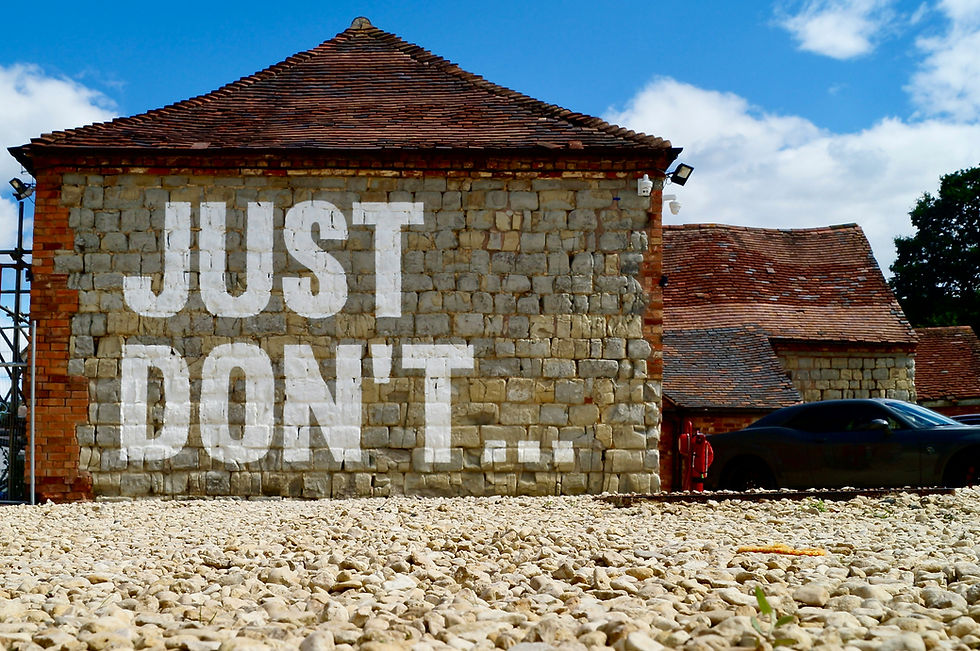“Mommy, that’s racist.”
- Jessica Kiragu
- Mar 1, 2024
- 4 min read
"You little monkey."
During a playful moment, I said this to my youngest daughter.
She stopped me with her words, "Mommy, that's racist."

She’s right - I regretted my words as soon as they left my mouth. More so, I was proud of her for calling me on it. I told her it’s true, white people shouldn’t call people of color - especially black people - monkeys. I apologized and thanked her for setting me straight.
Of course, as someone who loves her, I didn’t mean to cause her harm. But this isn’t about my intentions. The real issue is the long history of people who look like me using words like monkey to disparage, demoralize, and dehumanize people of color - and how I inadvertently reenacted this with my daughter.
This history isn’t irrelevant. It set the stage for how race works today. It's a tapestry woven with narratives, systems, beliefs, and behaviors that have stood the test of time and anchor us to our past. And my little one, she’s disrupting this history.
She’s using her voice to call out the racism that some might dismiss as harmless slights. She’s calling into question the structures that allow people with power to define humanity and diminish another person’s experience or injury. She knows her worth and she’s not letting others deny it.
She speaks for the small ones who came before her, every bit as precious, but who couldn’t speak up for fear of their lives. She’s reminding me of this reality and calling me to my better self. This young one, she’s a revolutionary.
In all honesty, I was nervous about telling this story. I expect backlash from people who think it’s no big deal for a white person to call a child of color monkey. I sense that if I share this story with another white person, they’ll tell me that I’m making an issue of nothing. Lots of grown ups call the kids in their lives monkey, they’d say.
Then there's the question, "Aren't you worried that you're going to make her racist?" I hear variations of this often. The reality is, she was born into a world where racism exists. Some argue that race isn't real and doesn't matter - they tell me I should let it be. I agree that race is a construct, but it undeniably has significant consequences in our lives.
My husband and I are trying to educate our daughter about the world and its racism. We strive to equip her with tools to navigate racial inequity, which is a part of life in the US. Like many parents, we seek to understand the potential dangers and obstacles our children may encounter and prepare them accordingly. We're teaching her that recognizing racial inequity and actively addressing it is vital to overcome the barriers she’ll face. Because, there are barriers.
This world will dismiss her experiences of racism as unreal. I know this because I, as a white person, have experienced it when I speak up about the racism I witness. Many times other people have denied the experiences of my mixed-race family. They say that the racism we've encountered never happened - that we made it up.
Others will attempt to downplay the racism she sees and knows. As a white person growing up in a mostly white environment, this was the approach to racism I was taught. Yes, it happens, but people of color need to move past it.
They’ll encourage her to overlook these injustices and instead focus on carving out her own path. They’ll point to successful people of color, telling her that if they could overcome, she can too. But, I refuse to be one of those voices.
This is where my own journey of understanding race comes in. Before I really took a deep dive into understanding whiteness and my relationship to it, I likely would’ve thought, "Oh no, she's calling me a racist." I would’ve interpreted her comment on my behavior as an attack on my character, a condemnation of who I am as a person.
Knowing that I definitely don’t want to be seen as a racist, I'd go out of my way to show just how not-racist I really am. But this would subtly shift the focus so that it’s about me, rather than about her and the impact of my words on her. If I kept this up, it would slowly chip away at our connection and wreak havoc on our relationship.
Growing up as a white person in the US, where we tend to ignore racism, I was fed tales of colorblindness. Understanding, addressing, and calling out racism wasn't something I knew how to do - but I'm on a journey to learn. I'm figuring out how to craft new narratives and scripts that are more in tune with the person I'm becoming.
By being a part of the lives of my black partner and brown children, I'm gaining a bettter understanding of what it's like to experience the world as a person of color. I'm learning from my mistakes and working to make amends when I mess up. And, I’m here, telling a story I was afraid to tell.
The way I see it, my little girl assumed positive intent. She trusts that I do my best to avoid causing harm or repeating behaviors that have been used to harm in the past. She spoke to my misstep, knowing that actions and words that perpetuate racism are not in line with my values. At her young age, being able to do this, it’s a win in my book.




Comments